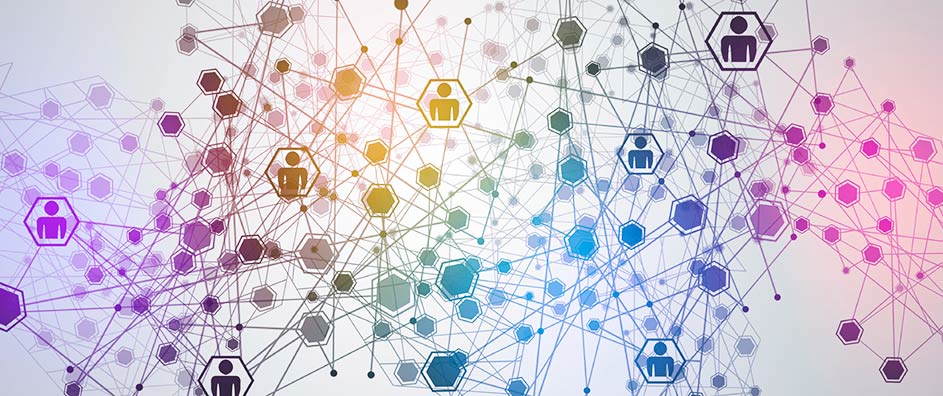The concept of a “New Unified Human Race” emerges as a pivotal tenet within the Bahá’í teachings, encapsulating the aspiration for global harmony and collective advancement. This aspiration transcends cultural, racial, and national barriers, positing that humanity must acknowledge its unity in diversity. Yet, one might whimsically ponder: can such a vision be realistically realized amid the myriad conflicts and divisions that characterize contemporary society?
At the heart of the Bahá’í faith lies the profound recognition that all humans are members of a single family. This notion is derived from the writings of Bahá’u’lláh, the founder of the Bahá’í faith, who articulated that “the earth is but one country, and mankind its citizens.” The call for a unified human race is not merely a lofty ideal but a necessary prerequisite for global peace and prosperity. It invites an exploration of collective identity that transcends the tribalism and insularity often observed in human behaviors.
The Bahá’í teachings emphasize that the eradication of prejudices is instrumental in achieving this unity. Prejudices—whether based on race, religion, or nationality—serve as formidable obstacles. The Bahá’í perspective asserts that only through the dissolution of these societal constructs can individuals truly embrace their shared humanity. This view compels a radical reevaluation of social paradigms, prompting individuals to question deeply ingrained beliefs and biases.
Moreover, the Bahá’í faith illuminates the intersection of spirituality and social progress. It asserts that spiritual development is inextricably linked to social action, advocating for proactive involvement in endeavors that aim to uplift humanity. Each individual bears a moral responsibility to contribute to the welfare of society, thus fostering a sense of interconnectedness. The challenge arises when contemplating how to galvanize widespread participation in this transformative mission, especially in societies characterized by individualism and self-interest.
The emphasis on education is another critical aspect of the Bahá’í teachings. Knowledge is deemed a catalyst for personal and communal advancement. The Bahá’í community emphasizes education as a universal right, accessible to all, regardless of background. It posits that an educated populace is essential for nurturing a culture of unity and collaboration. However, this presents issues of availability and equity in education systems around the globe. Can ongoing disparities in educational access be reconciled with the Bahá’í vision of a unified race?
The Bahá’í teachings further propose that the establishment of world peace is contingent upon the recognition of humanity’s oneness. This requires a shift in mindset that prioritizes collective well-being over individual gain, challenging the capitalist motives that often perpetuate competition and discord. The Bahá’í discourse advocates for the implementation of systems that ensure equitable economic opportunities for all. Yet, in practice, can the principles of altruism and collaboration effectively counteract entrenched economic structures that favor a select few?
In pursuit of the vision outlined in the Bahá’í teachings, the notion of a global governance system is introduced. This system, often referred to as a “world commonwealth,” suggests a radical restructuring of political frameworks to ensure that decisions reflect the needs and interests of all humanity. The establishment of a global parliament, composed of representatives from diverse backgrounds, could potentially address global challenges more effectively. Yet, the feasibility of such an institution raises questions. Can disparate nations set aside their sovereign interests to achieve a collective governance that truly embodies the principles of unity?
A pivotal challenge in realizing the Bahá’í vision for a unified human race is the cultivation of an inclusive global identity. This requires an understanding and appreciation of cultural diversity as an asset rather than a liability. By fostering intercultural dialogue, societies can dismantle misconceptions and build bridges across differences. The daunting question remains: how can individuals cultivate a genuine appreciation for diversity while simultaneously striving for unity?
As humanity grapples with the challenges of a globalized world, the Bahá’í teachings provoke reflection on the role of love and compassion in the quest for unity. The principle of treating others as one would wish to be treated is foundational to building a harmonious society. This altruistic perspective necessitates an active commitment to engage with and support one another, reinforcing the notion that individual well-being is inherently linked to the well-being of the collective.
In conclusion, the pursuit of a New Unified Human Race, as articulated within the Bahá’í teachings, requires a fundamental shift in individual and collective consciousness. This journey is fraught with challenges stemming from persistent prejudices, economic inequities, and political divisions. However, the potential for a harmonious coexistence presents an optimistic narrative—a narrative that calls upon humanity to transcend superficial differences in favor of deeper connections. Ultimately, realizing this vision is an evolving process, one that necessitates sustained effort, dialogue, and commitment towards the ideal of unity in diversity.
